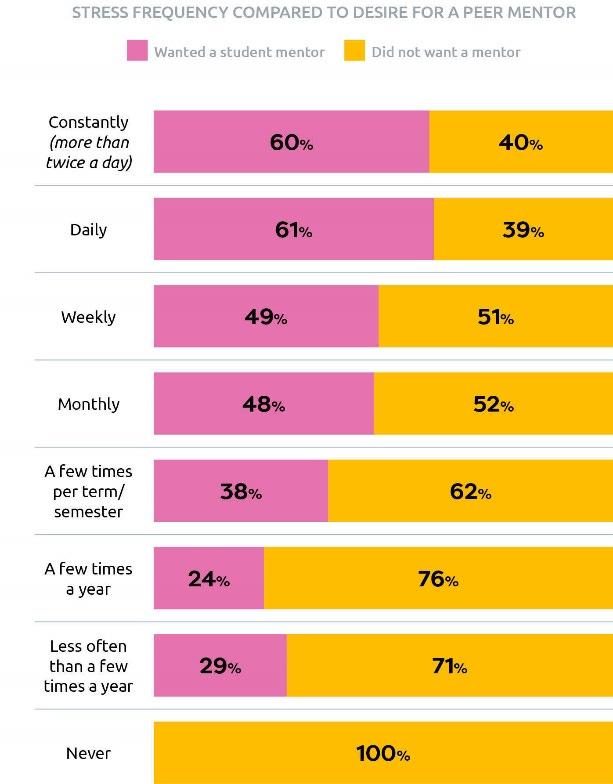In Our Increasingly Synthetic World, Students Need Peer Connections More than Ever
Jack Goodman, Studiosity
In Klara and the Sun, the Nobel-prize winning novelist Kazuo Ishiguro imagines a dystopian near future where wealthy parents purchase Artificial Friends (AF’s) to provide companionship for their children – robots with AI capabilities. It turns out the presence of AF’s, rather than helping children develop emotionally, brings out the worst in human behaviour.
For Ishiguro, there’s no turning back the clock and putting the AF genie back in the bottle. Likewise, Generative AI (GenAI) is changing university life, as are the hybrid and blended learning modes that the majority of students now expect.
As the Universities Accord final report recently reiterated, universities today face the challenge of delivering degrees enmeshed in learning environments that meet the academic and social expectations and needs of increasingly diverse student cohorts. The Accord Panel specifically stated that universities ‘need to explore innovative ways to facilitate student belonging’ (p. 168), so that all students are enabled to acquire knowledge and skills via high quality learning experiences that foster engagement across students’ diverse perspectives and lived experiences. One way to begin addressing this challenge is by focusing on data.
In the latest Australian Student Wellbeing Report, conducted with YouGov, several trends are clear. First, two thirds (67%) of university students did not have the support of a mentor in the past year. Of those who did not have a mentor, about half (51%) would liked to have had one. This figure is an increase from the previous year, where about one-third (34%) of students wanted a mentor. As the Table below shows, the desire for a student mentor also ‘correlates closely with frequency of stress – the less frequently students felt stressed, the less they wanted a mentor and vice versa’.
This growing desire underscores the importance of creating meaningful relationships in an era where digital communication and chatbots often replace face-to-face and human interactions. Despite the convenience technology offers, there is clearly a longing for personal connections and support systems – relationship-rich education – that can enhance the overall learning experience.
Students are also increasingly time-poor when it comes to their study and fitting it around other parts of their life. Since 2018, the Student Wellbeing Report series has shown more than a 5-fold increase in students working full time (from 4% in 2018 up to 21% in 2024). When you include part-time and casual workers, the percentage of students working in some capacity has increased from 72% to 86% over the same period. Indeed, it is exceedingly rare for any student to be engaged as a full-time tertiary student and not also be involved in some level of paid employment.
Decades of evidence – much of it assembled by the internationally-developed Peer Assisted Study Sessions (PASS) model – show that peer connections and support are of great benefit, to both the mentee and the mentor. The challenge, going back to before technology began to intermediate all aspects of our lives, has always been how to make these connections and relationships scalable across the large and increasingly diverse cohorts of students attending university.
The urgency is amplified in Australia due to our higher education system’s massified state. Our public universities, which educate the vast majority of students, enrol on average about 40,000 students, with the largest having 70,000 or more students. International students, those from non-English speaking backgrounds, those studying online, in blended and/or hybrid modes, first-in-family students, and students who are members of the four key equity groupshighlighted by the Universities Accord (First Nations students, students from regional or remote areas, students with disability, and students from LSES backgrounds), present further challenges for universities trying to personalise learning and support students meaningfully.
As the sector grapples with the task of catering to diverse student demographics and preferences, the role of technology in facilitating human connections becomes increasingly vital. By leveraging peer mentoring platforms and scalable solutions, universities can bridge the experience and digital divide between students and their institutions, creating a supportive ecosystem that fosters engagement, belonging, and satisfaction.
Just as Ishiguro's novel prompts reflection on the implications of human-AI interactions, it also serves as a poignant reminder of the enduring significance of genuine connections in navigating the complexities of a modern education.
Jack Goodman is the Founder and Non-executive Chair of Studiosity, the world leader in ethical, scalable student support services. He is also President of Friends of Libraries Australia.
Notice: NeededNow’s editor, Sally Kift, is a member of Studiosity’s Academic Advisory Board



